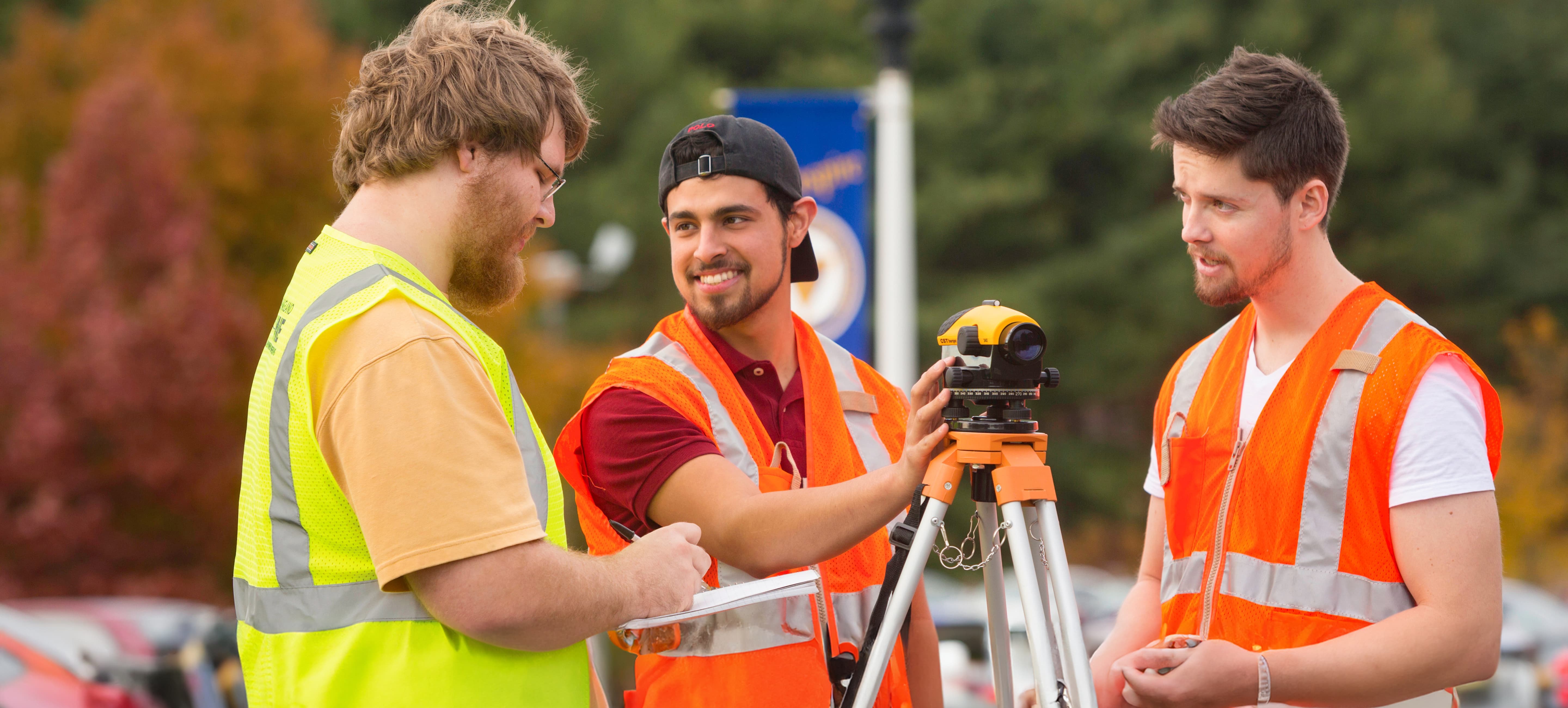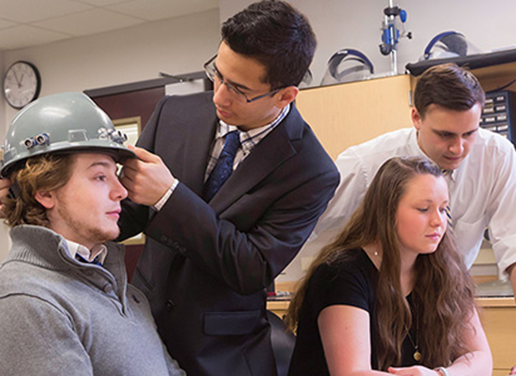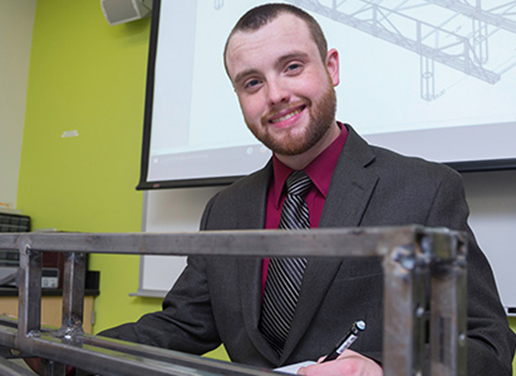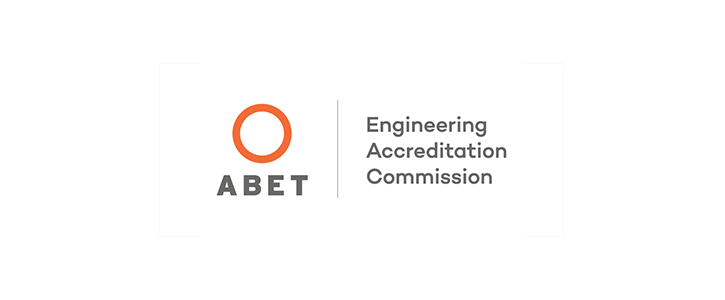Designing the Infrastructure of Tomorrow
Are you interested in the foundations and structures that help the world function? Our Civil Engineering major focuses on the latest developments in the design, efficiency, construction, and maintenance of society’s infrastructure. You will learn about how the world around you is constructed through classroom, laboratory, and internship experiences (including study abroad in China and international collaborative projects, such as Solar Decathlon competitions). With a focus on entrepreneurship, innovation, interdisciplinary learning, and green engineering, you’ll have the education to play a role in building tomorrow's framework from the ground up.
Why Choose Civil Engineering?
Our nation’s success has been built on the foundation of our solid infrastructure, much of it constructed decades ago. Today, thousands of public works projects in the United States are in desperate need of repair, and many more new infrastructure developments are necessary to keep our country competitive. According to the latest U.S. News & World Report ranking, civil engineering is ranked #7, and environmental engineering is ranked #6 in Best Engineering Jobs. There has never been a greater need for civil and environmental engineers to plan, execute, and lead these important projects.







